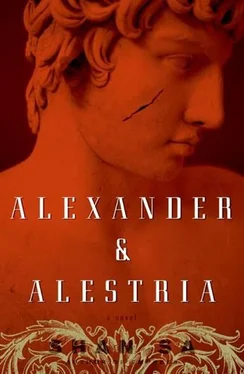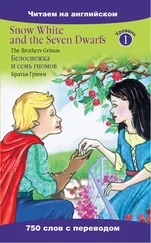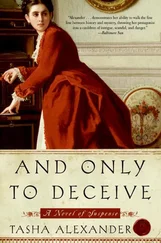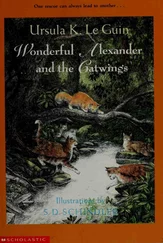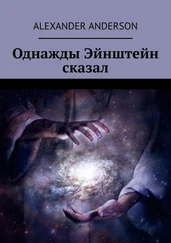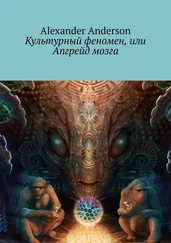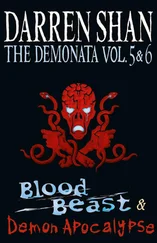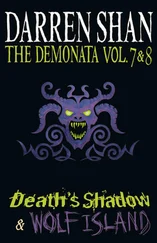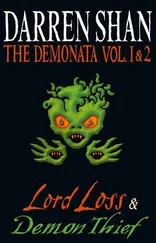"When you grow up," Talaxia told me, "you will be stronger than these men."
"Males have no udder to feed their young," Tankiasis added. "They have no bellies to bear young. That is why they constantly chase females to make them bear their progeny."
"Yes," said Talaxia. "They're like walking cuckoos, laying their eggs in other birds' nests."
"Except ours!" Tankiasis laughed. "The girls of Siberia drink magic infusions. They don't lay eggs, they fly away."
Many men approached my mother, and when she spoke to them they were the ones who lowered their eyes in submission. When they fought with her naked, she was the one who forced them to the ground and mounted them.
The wind blew through the doorway, and the moonlight drifted in and out. I was fascinated by men's muscles and swore mine would be like theirs when I grew up. Talaxia was not afraid of a man taller than her; she seized him bodily, handled him roughly, turned him round. With her long hair swinging in the silvery moonbeams, a distant smile playing on her lips and her eyes pinned to the top of the glacier, my mother made the man howl, begging her to love him again.
He had stopped shouting and lay snoring. My mother called me and put my hand on his sex. It was cold and damp, disgusting.
"Our sex is in our heads," my mother told me. "No one can steal it, no one can take it away!"
My head still reeling with the feel of that man's genitals, I wandered among the market stalls with Tania. Boys dressed in blue and saffron cloth, their heads wrapped in turbans, winked and threw flowers at us. The boldest stopped us and tried to talk to us. Tania panicked and dragged me away, not wanting them to touch me, afraid they might bewitch me. She was happier watching monkeys dancing with snakes, but I broke away from her and slipped into the crowd. She ran after me, calling to me as I weaved along alleyways between bustling customers, and hid among hanging carpets and bolts of cloth. Tania was stubborn as a mule and would not give up.
Tania was afraid of men. I simply did not like them.
***
I was growing, and my breasts filling out. I used my bow a hundred times a day to dig a deep furrow in the wound on my left breast, and the tough scar tissue forming over it meant I could carry ever heavier bows. I chose bigger and bigger horses, compensating for my small stature with the size of my horse and perfecting my own strengths with my own sacred weapons.
Every queen of Siberia, when she reaches maturity, must travel to the land of the volcano, where she is given a gift of black blades forged by our cousins, the whale hunters. Accompanied by my faithful Tania, I covered a huge distance to reach the forest and then the ocean. I was greeted by the Great Mother of the tribe, who had a beard and many tattoos. There was a special ceremony during which she sang, surrounded by dancing women, and called on the spirits, which had indicated their desire to be incarnated in my weapons. Three seasons later, a sun-shaped bludgeon and a moon-shaped sickle were forged and beaten out on the foothills of the volcano. Two warrior souls came down to breathe life into them: the female soul wedded the solar bludgeon, the male soul the lunar sickle. During my time on the shores of that freezing ocean, the sun darkened in the very middle of the day, devoured by the moon.
"A great queen has come to earth," concluded the Great Mother, studying me closely. "The moon has outstripped the sun: a queen shall conquer a king."
I was not that queen. I would like to have told her that, but I held my tongue. I was not a queen, I was a bird of the steppes.
"The king and queen will come to the land of the volcano," she said, gazing at the glaciers that were now black shadows.
After my return we were attacked by a nomadic tribe. I gave my first orders, and my aunts and sisters followed my commands. Our attackers were ferocious men and more numerous than us, but they fell into my strategic trap. Once they were divided, we struck them down one after the other with our swift blades.
The Amazons decapitated their slain enemies and slung their heads over their horses' rumps as trophies. Some reduced them to the size of an apple and attached them to their headdresses. Others dried out the head, liver, and testicles, ground them to a powder, and used it to make an infusion that gave them strength and courage. They spoke magic incantations and buried the heart, thereby appeasing the suffering of those souls constrained to leave the valiant bodies of an indomitable tribe.
I had no adornment. The only head I would have liked to hang on a length of woven cord between my breasts was that of my first warrior. I carried the memory of him in my heart-he was my invisible jewel.
There were frequent wars on the steppe: nomadic tribes quarreled, were reconciled, stole from each other, and were allied by marriages. One tribe might be exterminated and wiped from the face of the earth; others might appear on the horizon screaming their war cries, having sprung up apparently from nowhere. There was once a tribe in which the men painted themselves blue, but we no longer saw them at the market. Then there were men with red tattoos who brought a new language, but they in turn disappeared. There had been a tribe of bird tamers and a clan of snake charmers. There was a tribe that venerated stones, and another that venerated their mothers.
On the steppes the grasses grow and dry out; men and women are born and die like the grasshoppers; the earth is inseminated by the rain and hatches new lives; war can destroy just as readily as the earth brings forth.
The tribe of girls who love horses had survived the erosion of time; it had survived massacres, the cold, and the wind. It was condemned to perish like the mountain that collapses beneath the eternal snows.
The Amazons fought for death.
Death is the black light of the life.
I wanted the golden light of the sun.
I carried in my heart the immortality of all things loved.
***
When I was fourteen, I was smitten by a girl I caught sight of at the market. She had a white veil and sparkling black eyes; I could imagine her raspberry mouth, and teeth as hard as little seashells. She was surrounded by serving women, tending to her like the chick of a white bird with a red head.
From the first moment I saw her, I could not bear to be away from her. Despite Tania's supplications, I followed her for days on end, and Tania returned to the camp, exhausted. I carried on hovering around the girl until she eventually spoke to me: when she realized that I loved her, she arranged to meet me in a luxurious inn. I sold my mare to pay for that night.
Salimba undressed before I even touched her, and she threw her curvaceous body and full breasts into my arms. I loved her again and again. Between our couplings she told me she was betrothed to an ugly, cruel, and aging tribal chief, a man who already had ten wives; she would be his eleventh. She said she was unhappy, that her father also had ten wives, and that she was the tenth wife's daughter. She said that she foresaw terrible suffering, that the ten wives would speak ill of her and mistreat her, that she might just earn the tribe's respect if she bore a son, and that her daughters would be sold to men as she and her mother had been.
Salimba wept, suffocated by her fate. And so I spoke to her of white cranes with crimson heads and of our wars against men. I invited her to have a child with me and to become my wife. She stopped weeping, listening attentively with her head resting on the wound on my breast.
"I would have liked to marry you, Talestria," she said after a long silence. "But I am not an Amazon. My belly is flaccid, my legs soft, my arms have no strength, I can barely even lift a pail of water. I know neither how to cook nor to hunt nor to live without perfumed milk, nor to sleep without a thick mattress woven with ewe's wool. Forget Salimba, she is a weakling. Hold me in your arms. Love me once more, one last time!"
Читать дальше
